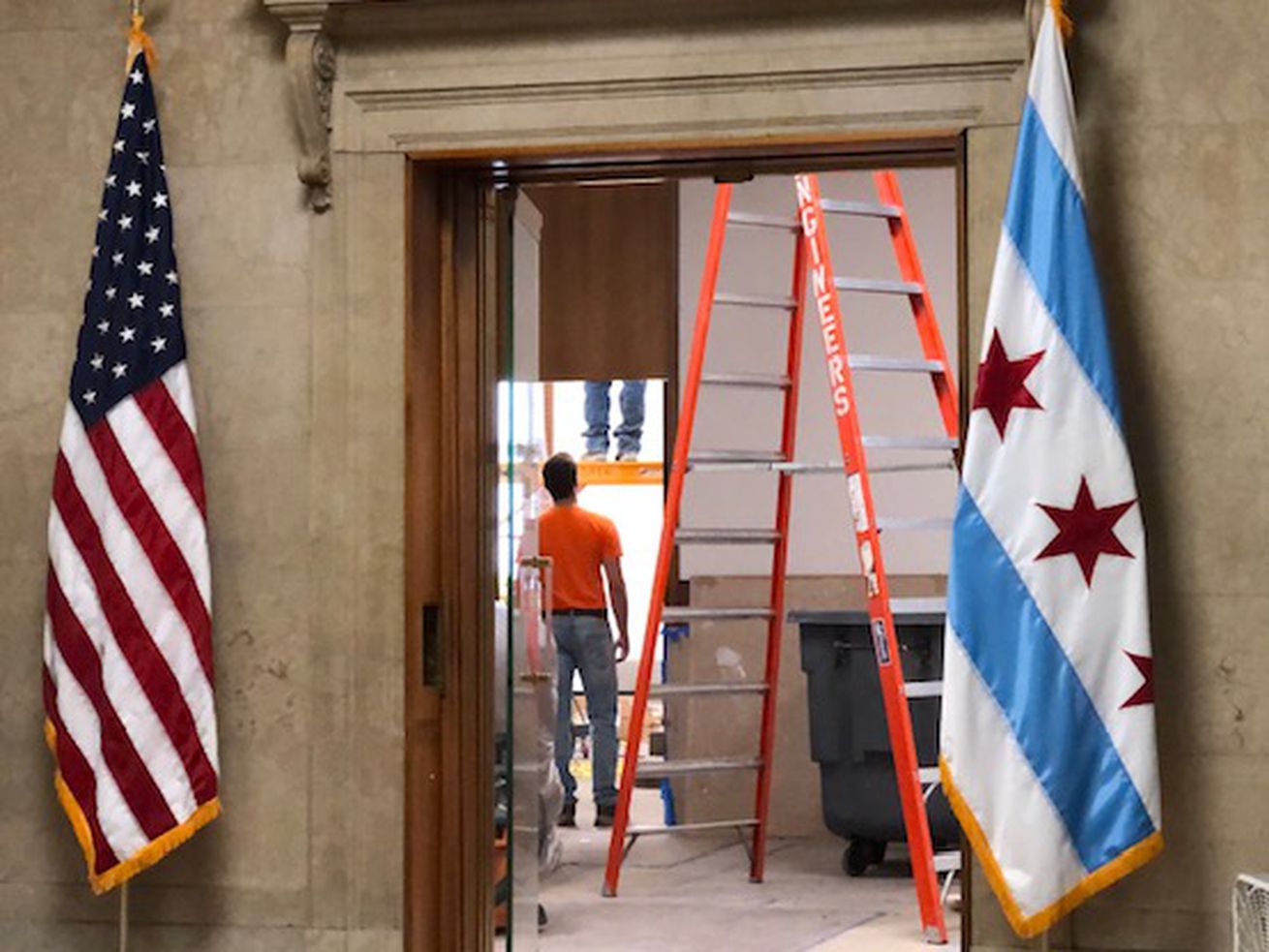
The chief operating officer and street commissioner are leaving. Last month saw the departures of both Chief Procurement Officer Shannon Andrews and mayoral press secretary Jordan Troy.
Chicago’s chief operating officer and Streets and Sanitation commissioner are leaving City Hall, exacerbating the extraordinary mid-term turnover in Mayor Lori Lightfoot’s cabinet.
Chief Operating Officer Anne Sheahan’s resignation is effective at week’s end. Streets and Sanitation Commissioner John Tully intends to retire in June.
Chief Procurement Officer Shannon Andrews left in April to join the county health system. Mayoral press secretary Jordan Troy also has signed off.
Sheahan, Tully and Andrews are holdovers from former Mayor Rahm Emanuel’s administration.
So were Water Management Commissioner Randy Conner, who resigned in late December; Family and Support Services Commissioner Lisa Morrison Butler, who stepped down in February, and Sydney Roberts, head of the Civilian Office of Police Accountability, who was forced out last week after Lightfoot publicly ridiculed the slow pace of COPA investigations.
Chicago Public Schools CEO Janice Jackson, another Emanuel holdover, announced May 3 she would not renew her $300,000-a-year contract. She’s exiting CPS, along with her two top deputies.
Deputy Mayor for Public Safety Susan Lee lasted just 16 months and was replaced last week by Lightfoot’s former Police Board colleague, John O’Malley.
Chief Risk Officer Tamika Puckett also stuck around for just 16 months before leaving that newly-created job to become head of cyber risk management at Zoom.
Chief of security Jim Smith, a retired deputy U.S. marshal whose appointment as head of Lightfoot’s bodyguard detail angered Chicago police officers, didn’t make it even close to mid-term. Neither did chief in-house labor negotiator Mike Frisch, deputy communications director Lauren Huffman, deputy press secretary Pat Mullane and chief engagement officer Juan Carlos Linares.
Corporation Counsel Mark Flessner, Lightfoot’s longtime friend and former colleague in the U.S. attorney’s office, resigned as part of the fallout from the botched police raid on the home of Anjanette Young.
Lightfoot claimed she didn’t know about Flessner’s attempts to block WBBM-TV (Channel 2) from airing bodycam video of the raid.
Sources said Lightfoot’s chief of staff, Maurice Classen, has told associates he, too, may be preparing to depart City Hall. Lightfoot is already on her third communications director and third press secretary.
She’s also still searching for a new fire commissioner. Veteran boss Richard C. Ford II had to leave in April after reaching the mandatory retirement age of 63.
And Michael Fassnacht, Lightfoot’s $1-a-year chief marketing officer, is still holding down the fort at World Business Chicago.
Andrea Zopp, yet another Emanuel holdover, stepped down in December from World Business, a public-private job growth agency that will play a major role in rebuilding a Chicago economy decimated by the pandemic and two rounds of looting.
With all of those changes and more, no wonder Lightfoot was somewhat defensive this week when asked about the revolving door at City Hall.
The mayor acknowledged it has been a “difficult year” and “a lot of people are taking stock of where they are” as she approaches the halfway point of her term on May 20.
“I feel very comfortable about where we are as a city, as a mayor’s office. We’ve got great people who are working their tails off every day to service the residents of this great city,” she said.
Ald. Roderick Sawyer (6th), chairman of the City Council Committee on Health and Human Relations, said he has no idea whether there is an “underlying current for the mass exodus.”
It “could be a mid-season correction.” he said. After a short transition tied to the mayoral runoff prompted her to retain much of Emanuel’s cabinet, Lightfoot may also be getting around to choosing her own people.
But Sawyer said he can’t help but wonder whether the mayor’s abrasive management style and propensity to micromanage and publicly criticize some department heads might be making it difficult for her to retain and recruit good people.
“I don’t know how she treats her department heads. But if it’s anything like with us [aldermen], it’s kind of a top-down approach. There’s no collaboration,” Sawyer said.
He added, “When I talked to [COPA chief] Sydney Roberts, she felt stressed and felt there might have been some undue pressure on her, which might have been a contributing factor to her leaving.”
Sawyer doesn’t buy the argument that pandemic fatigue is causing the revolving door at Lightfoot’s City Hall to spin faster.
Departments like Family and Support Services are about to receive a windfall of federal relief funds “they’ve probably never seen before,” he noted.
“I would consider that more of an opportunity as opposed to a hindrance. This is where I would want to be right now.”
Former independent Ald. Dick Simpson (44th) endorsed Lightfoot and served on her transition team.
Simpson cited three reasons for the heavy turnover: mid-term correction, COVID-19 fatigue and the “works well with others” grade on her report card.
“She gets angry and she speaks out. She has very high standards for what she wants done when and there’ve been crisis after crisis to deal with: the shootings, the pandemic and so forth,” Simpson said.
“I do think there are problems in terms of the mayor’s work with her employees. The demands appear to be too much for some of them.”
